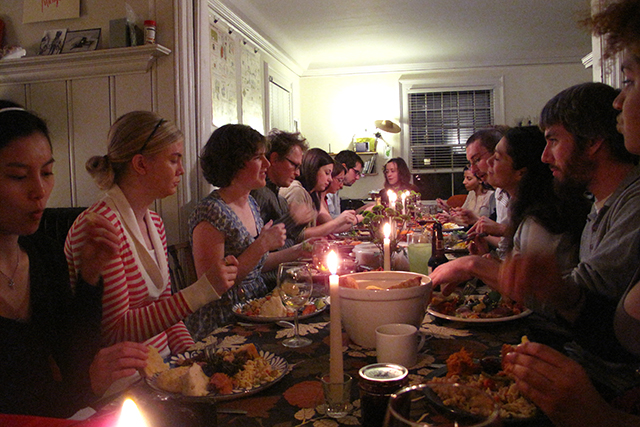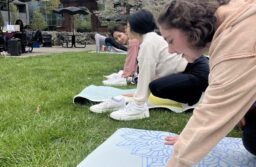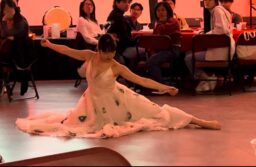
Photo courtesy of Cecilia, Flickr
The Jewish student organization Hillel and the Muslim Student Association, also known as MSA, worked to eliminate religious barriers at an interfaith dinner held on Nov. 21 called “Friendsgiving.”
“We wanted to do something Thanksgiving-themed, since we thought gratitude was such an important concept, especially from our faith tradition,” said Talia Mizikovsky, Director of Jewish Student Life.
“We thought is there any better way to invite different faiths in an interfaith setting where we could all share gratitude and create connections with one another,” she continued.
While students dined on Thanksgiving classics such as stuffing and mashed potatoes they thoughtfully crafted questions displayed at the center of the table to prompt facilitated conversation and cause individuals to reflect on the significance of the holiday.
“Thanksgiving is a time to express gratitude and I am personally thankful to attend an institution where I am allowed to practice my religion openly and celebrate with others that do not fall under the same religious umbrella,” said Cassandra O’Malley, senior and president of Hillel.
According to popular folklore, the holiday traces back to the 15th century when the early colonists and Native American Indians shared an autumn feast, Thanksgiving is one of the few holidays with no religious affiliation.
“I love the fact that it’s an American holiday without any religious affiliations so that it’s universally acceptable in many ways,” said Mizikovsky.
“I think gratitude is such an important part of the Jewish faith and every faith that I’m aware of. It’s something that we shouldn’t celebrate once a year but we should work to integrate it in our everyday lives,” she continued.
The universality of Thanksgiving helps to break down religious, cultural and social divides between people.
“Thanksgiving encourages people of all backgrounds to come together because it is meant to be a place of comfort and welcoming,” said Rand Abdul-Raziq, sophomore and president of MSA.
“People are usually surrounded by friends and family, and are encouraged to open their doors for others who might not be spending their holiday with loved ones. Its basic yet essential aspects look beyond race and faith.”
Events such as “Friendsgiving” foster an inclusive atmosphere that not only highlights similarities between different religions but also pushes attendees to reflect on their own ideology.
“We have been working closely with other religious organizations to plan events showing that even though there are traditions specific to each religion, we are all based in beliefs or non-beliefs of the same ideas,” said O’Malley.
“Planning interfaith events has brought me closer to not only the religions I am just getting introduced to, but also encourages me to look deeper into my own,” she continued.
Although the Thanksgiving holiday comes to a close after the last bite of pie, the important themes and messages may be remembered throughout the year.
“Our differences make us unique, but we all share common values,” said Dawn Wilkenfeld, senior and social director of Hillel.
mladha@ramapo.edu





